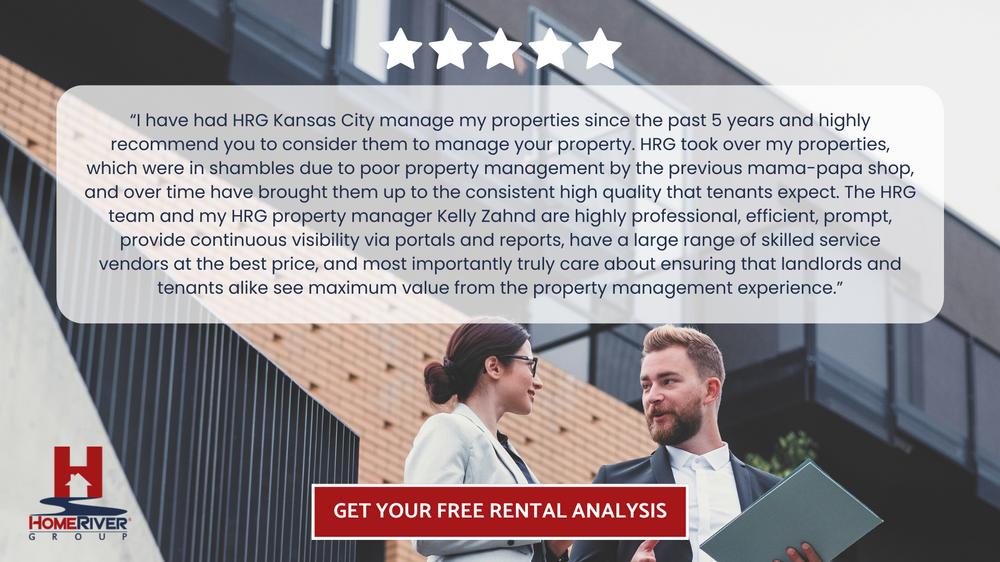
Security deposits are often misunderstood, yet they are one of the most critical aspects of any lease agreement. In Arizona, where rental laws are specific and time-sensitive, both landlords and tenants must understand the rules governing deposits to avoid disputes. Missteps in how a deposit is collected, held, or returned can lead to serious legal consequences. That is why landlords need more than just good intentions; they need process-driven systems backed by current legal knowledge.
With one of the largest nationwide footprints in property management, HomeRiver Group has built its reputation by expertly managing thousands of single-family and multifamily rental homes across the United States. We bring together local market insight and national-scale systems to deliver consistent, professional service to both investors and renters. From regulatory compliance to tenant relations, we handle it all with precision and clarity.
We will be discussing Arizona security deposit limits and return rules, and how HomeRiver Group supports compliance and transparency throughout the leasing process.
Understanding Arizona Security Deposit Law
Security deposits are a standard part of the rental process, but Arizona law clearly outlines how they must be handled by landlords. These laws are designed to protect both tenants and property owners, creating a transparent framework that defines limits, timelines, and expectations.
In Arizona, security deposit regulations are governed by Arizona Revised Statutes § 33-1321, which lays out how much can be charged, when deposits must be returned, and under what circumstances deductions are allowed. Understanding these guidelines helps landlords stay compliant and gives tenants confidence that their money is handled fairly.
Whether you're managing a single rental unit or overseeing multiple properties, staying informed about the Arizona security deposit law is essential. Mistakes in handling deposits can lead to legal disputes, penalties, or damage to your reputation as a property owner or manager. Partnering with an experienced property management company like HomeRiver Group can help you stay aligned with these legal responsibilities while keeping your tenants satisfied.
Security Deposit Limits In Arizona
Arizona places firm legal boundaries on how much a landlord can request as a security deposit. These limits are designed to protect tenants from being overcharged and to help landlords avoid costly compliance issues. Here's a closer look at what the law says:
Maximum Allowable Deposit Amount
According to Arizona Revised Statutes § 33-1321(C), landlords cannot charge more than one and one-half months’ rent as a refundable security deposit. This limit applies regardless of the property's condition, location, or tenant history. Anything above that threshold must be classified as a nonrefundable fee and documented in the lease.
Nonrefundable Fees And Lease Requirements
If a landlord chooses to charge any nonrefundable amount in addition to the refundable deposit, it must be clearly spelled out in the lease agreement. Arizona law requires that the tenant agree to the fee in writing. This distinction ensures transparency and prevents disputes later on, especially if the tenant believes a fee was refundable.
Example Of A Compliant Deposit Structure
For a rental unit priced at $1,200 per month, the landlord can legally ask for a refundable deposit of up to $1,800. If they also charge a $200 nonrefundable cleaning fee, that amount must be listed separately in the lease. By structuring the deposit correctly, property owners stay compliant while protecting their investment.
Conditions For Withholding A Security Deposit
Arizona law does allow landlords to withhold part or all of a tenant’s security deposit, but only under specific circumstances. These conditions must be reasonable, documented, and directly related to the lease terms. Here is how those conditions are defined and applied:
Damage Beyond Normal Wear And Tear
Landlords can deduct from the deposit to cover damages that go beyond ordinary use of the property. This includes things like broken fixtures, holes in walls, or stained carpets that cannot be cleaned. Normal wear, such as minor scuff marks or faded paint, cannot legally be deducted.
Unpaid Rent Or Utility Charges
If a tenant leaves the property owing rent or has unpaid utility bills that the landlord covered, the owed amount can be deducted from the deposit. Documentation is key in these cases. The landlord must be able to show exactly what was owed and why it was subtracted.
Breach Of Lease Terms
When a tenant breaks part of the lease agreement, such as moving out early without proper notice, the landlord may be able to withhold part of the deposit to recover certain losses. These deductions must still be lawful and supported by clear evidence of loss or cost.
Security Deposit Return Rules In Arizona
Returning a tenant’s security deposit is more than just a best practice in property management. In Arizona, it is a legal obligation that comes with specific timelines and requirements. Understanding these rules helps landlords avoid penalties and builds trust with tenants:
Legal Timeline For Returning The Deposit
Arizona law requires landlords to return the tenant’s refundable deposit within 14 business days after the tenant has moved out and returned the keys. This time frame begins only after the tenant has officially vacated and the landlord has received a forwarding address. Missing this deadline can result in legal claims from the tenant, including potential damages.
For a deeper look into this requirement, HomeRiver Group explains it clearly in their guide on how long does landlord have to return deposit.
Required Itemized Statement For Deductions
If the landlord makes any deductions from the deposit, they must also provide the tenant with a written, itemized list of those deductions. This statement should include the reason for each deduction and the amount, along with any supporting documentation such as receipts or invoices. Providing this list is not optional, it is a required part of the return process.
Penalties For Noncompliance
Failure to follow Arizona’s deposit return rules can expose landlords to legal and financial consequences. If a landlord wrongfully withholds the deposit or misses the 14-day return period, the tenant can take the matter to small claims court. In some cases, the landlord may be required to pay additional damages on top of the original deposit amount.
Documentation And Inspections
Proper documentation and thorough property inspections play a critical role in managing security deposits. These steps help ensure transparency for tenants and legal protection for landlords. They also make the deposit return process smoother and easier to justify when deductions are necessary:
Move-In And Move-Out Inspections
Conducting detailed inspections before a tenant moves in and after they move out creates a clear visual and written record of the property's condition. These inspections help distinguish between pre-existing damage and anything caused during the tenancy. Using a consistent process for these evaluations protects both parties from disputes.
To simplify the process, HomeRiver Group offers a helpful resource through their rental property inspection checklist that ensures nothing important is missed during evaluations.
Keeping Accurate Records
Landlords should document all maintenance, repairs, and communications with tenants throughout the lease period. These records provide the necessary support for any deposit deductions and help avoid legal issues. Clear documentation also builds credibility and reinforces professionalism in every tenant interaction.
Lease Agreement Clarity
A well-written lease agreement is just as important as inspections. The lease should clearly outline the conditions under which a deposit may be withheld, any nonrefundable fees, and the procedures for move-out. When tenants understand these terms from the beginning, it reduces confusion and helps manage expectations.
Homeriver Group's Role In Protecting Tenants And Landlords
Navigating Arizona’s rental laws can be challenging for both landlords and tenants. HomeRiver Group acts as a trusted partner by ensuring full legal compliance and offering professional management that removes guesswork from the process. Their expertise helps safeguard the financial interests of both parties while promoting positive rental experiences:
Legal Compliance And Risk Reduction
HomeRiver Group stays up to date on all aspects of Arizona security deposit law, reducing the risk of legal missteps for landlords. From setting appropriate deposit limits to meeting return deadlines, every action is handled with precision. Their team understands how to apply the law correctly, which gives clients peace of mind.
Transparent Communication With Tenants
Clear, timely communication is essential when handling security deposits. HomeRiver Group helps foster that transparency by managing lease agreements, providing documentation, and addressing tenant questions. This professional approach improves tenant relationships and lowers the chances of disputes.
End-To-End Property Management
From move-in inspections to final deposit returns, HomeRiver Group handles every step of the rental process. Their systems are designed to document every detail and ensure all actions align with the law. For landlords, this means fewer administrative headaches. For tenants, it builds confidence in how their deposit is managed.
For those wondering about tenant selection and leasing policies, HomeRiver Group also addresses topics such as does a landlord have to give a reason for not renting, offering clear guidance to support fair and consistent practices.
Final Thoughts
Understanding and following Arizona’s security deposit laws is essential for maintaining a successful rental property. These regulations not only protect tenants from unfair practices but also help landlords operate within clear legal boundaries. When deposits are handled correctly, they support trust and professionalism in the landlord-tenant relationship.
HomeRiver Group makes this process easier for property owners by providing comprehensive support at every step. From inspections and documentation to legal compliance and communication, their services ensure deposits are managed the right way. For landlords seeking peace of mind and tenants looking for transparency, partnering with a trusted property management company makes a meaningful difference.
Read also:
Frequently Asked Questions About Arizona Security Deposit Law
Can a tenant use the security deposit as last month’s rent in Arizona?
No, tenants in Arizona are not allowed to apply their security deposit toward the last month’s rent unless the landlord gives written approval. Doing so without consent may result in a legal dispute or additional charges.
What happens if the tenant damages the property after moving out?
If damage is discovered after the tenant has vacated, landlords may still deduct repair costs from the deposit, provided they meet the 14-business-day return timeline and include an itemized list of those charges.
Does Arizona law treat pet deposits differently from standard security deposits?
Pet deposits in Arizona are treated as part of the total security deposit limit unless they are explicitly labeled as nonrefundable in the lease. The combined refundable portion must not exceed one and one-half months’ rent.
Can a landlord increase the security deposit mid-lease?
No, unless both parties agree in writing. Arizona law does not permit unilateral changes to security deposit terms once the lease has been signed.
How can a tenant challenge unfair deposit deductions?
Tenants can request written justification for any deductions and pursue legal action in small claims court if they believe the charges are excessive or unsubstantiated.
Are verbal lease agreements enforceable in Arizona regarding security deposits?
While verbal agreements may hold up in some cases, Arizona law strongly favors written leases, especially when security deposits and refund conditions are involved. Without written documentation, proving terms becomes significantly harder.
Is interest required on security deposits in Arizona?
No, Arizona law does not require landlords to place security deposits in interest-bearing accounts or return any interest earned on those funds.









